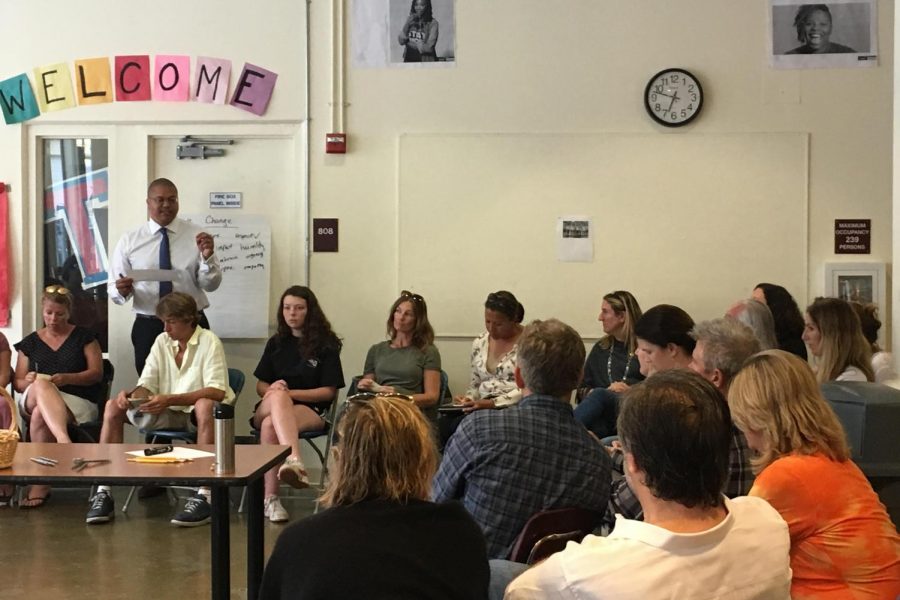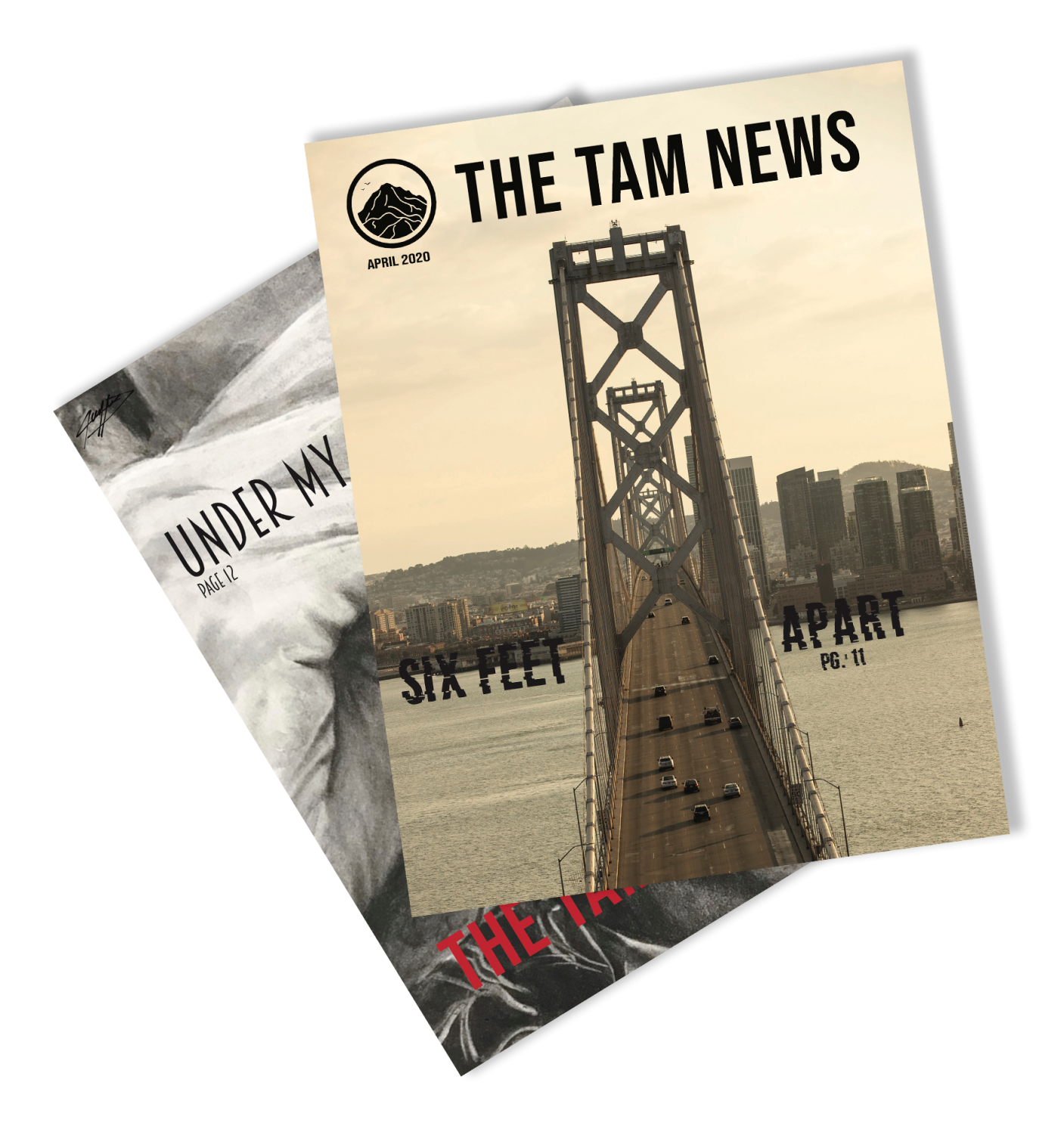Administration addresses scavenger hunt at town hall
Jul 6, 2019
Tam administration hosted a town hall in the student center on Wednesday, June 12 to discuss the roots of and possible solutions for the scavenger hunt, an upperclassman tradition which assigns point values to various illegal or immoral activities. Along with parents, students, and Tam staff, Tamalpais Union High School District (TUHSD) superintendent Tara Taupier, TUHSD board members Barbara Owens and Dan Oppenheim, and Marin Youth Court director Don Carney attended.
Prior to the town hall, the administration punished several suspected participants of the hunt who had been filmed on surveillance footage gathering in the back parking lot (BPL). Seniors were pulled from their field trip to Six Flags and assigned community service.
After an introductory speech, principal J.C. Farr hosted an initial question-and-answer session where he stressed his desire for a community reckoning on the subject.
“My point was not to point blame … [We all are] looking to point fingers and say it’s your fault as a parent [or] my fault as an administrator. What I’m here to say is, we’re all dealing with this, we are all dealing with the fallout of our kids’ behavior,” Farr said.
Community members spoke on a variety of topics related to the scavenger hunt. One man said the reckless and drug-fueled activity of the hunt resembled events like the Bay to Breakers race and admonished parents for appearing to selectively care about their children’s illegal activity.
Another parent of a scavenger hunt participant apologized on behalf of her child and explained feeling deceived over the nature of the event.
“I let him stay out, and had I seen that entire list and known that his participation was encouraging other students to do things that were harmful and illegal, I obviously would have had a different response,” she said.
Attendees questioned the appropriateness of some punishments over others. Carney and others stated their strong support for restorative justice, like youth court or community service, instead of harsher options that might harm the college aspirations of many seniors. Many others supported harsher measures, such as revoking the privilege of walking at graduation.
The town hall was then divided into three groups to pose possible solutions for the scavenger hunt, headed by Farr, assistant principal Tenisha Tate, and Taupier. At least one group discussed, among other topics, the importance of countering “anti-snitch-culture,” where students ignore or fail to report their peers’ illegal or risky actions; encouraging family discussions; and creating a code of conduct with the school to deter such behavior.
However, while the discussions were lengthy, with the event lasting over an hour and a half, the ability of the school or town hall on its own to effect any serious change is limited. No video footage showing illegal acts being performed on campus were said to have been obtained, making any punishments, while broadly supported, potential legal liabilities for the school.
“I do not have confirmation of what actually occurred. Like I said, what we know is that students gathered in the back parking lot. Everything else is speculation as far as what students actually participated in,” Farr said.
And while police presence can be heightened next year, without the cultural change that Tam administration hopes to spark, it is unclear that there will be any serious diminishment in the scope or popularity of the hunt.




